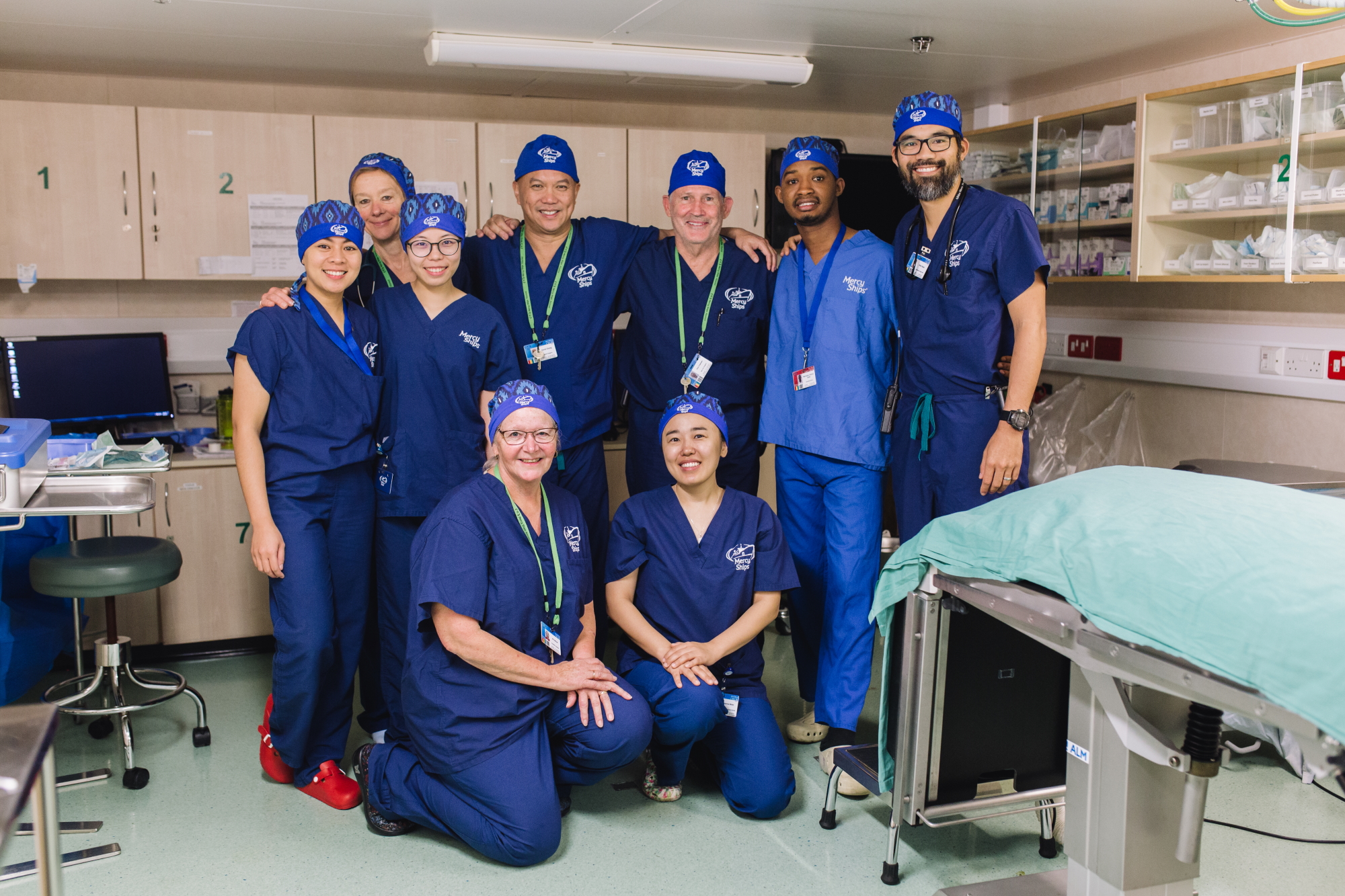As Mercy Ships commemorated its 40-year legacy in 2018, the organisation marked another major milestone: the 100,000th free surgical procedure provided to a patient in need.
Docked for a 10-month stay in the West African nation of Guinea, these free surgical procedures [1] are performed on board the world’s largest independent hospital ship and used to treat tumours, burns, vision problems, women’s health conditions and childhood orthopaedics, and also include general surgeries.
“We’re excited to reach this significant milestone and honoured to be a part of transforming so many lives,” founder Don Stephens said.
The 100,000th surgical procedure was a cleft lip correction performed by Australian plastic surgeon David Chong for 7-month-old Aissata on board the hospital ship Africa Mercy.
Chong is the current president of the Australasian Cleft Lip and Palate Association and volunteers with Mercy Ships twice a year.
“Being part of this milestone is humbling, especially when you think about the incredible legacy that Mercy Ships has built over the past 40 years by healing thousands of patients like Aissata,” Chong said. “So many other volunteers have helped change lives for the better, and I’m proud to contribute to this powerful work.”

The operating theatre crew who performed the 100,000th surgical procedure
Mercy Ships addresses this global surgery crisis by using hospital ships staffed by volunteers in places where surgeons are needed most. These surgeons and medical volunteers on board also train local medical professionals who will stay in their home countries, effecting change long after Mercy Ships departs.
Mercy Ships has provided life-changing and life-saving medical care in 56 developing countries. But that’s only part of its commitment to fighting the global surgery crisis. Mercy Ships works to develop a five-year plan to address each nation’s needs before, during and after the hospital ship’s 10-month stay in port, creating a lasting impact.
This five-year approach includes significant investment to improve the host nations’ health care systems by training medical professionals and upgrading local facilities. In its 40-year history, Mercy Ships has:
- Trained over 42,250 local professionals (surgeons, anaesthesiologists, midwives, etc.)
- Provided services valued at more than $1.53 billion
- Completed more than 1,100 agricultural and infrastructure development projects, including building or renovating medical and dental clinics
“Of the world’s 7.6 billion inhabitants, it is the bottom billion voices that cry to us. The African continent has the highest maternal/infant mortality, lowest life expectancy and has been limited to almost non-existent surgical services. Therefore, Mercy Ships continues to prioritise our African partnerships,” Stephens said.
[1] One patient can receive multiple surgical procedures within the types of surgery provided: maxillofacial, plastic reconstructive, women’s health, paediatric orthopaedic, ophthalmic and general surgeries.
[2] Lancet Commission on Global Surgery
There are so many ways to get involved with our mission of bringing hope and healing to those in need. For more information, check out mercyships.org.au/volunteer.